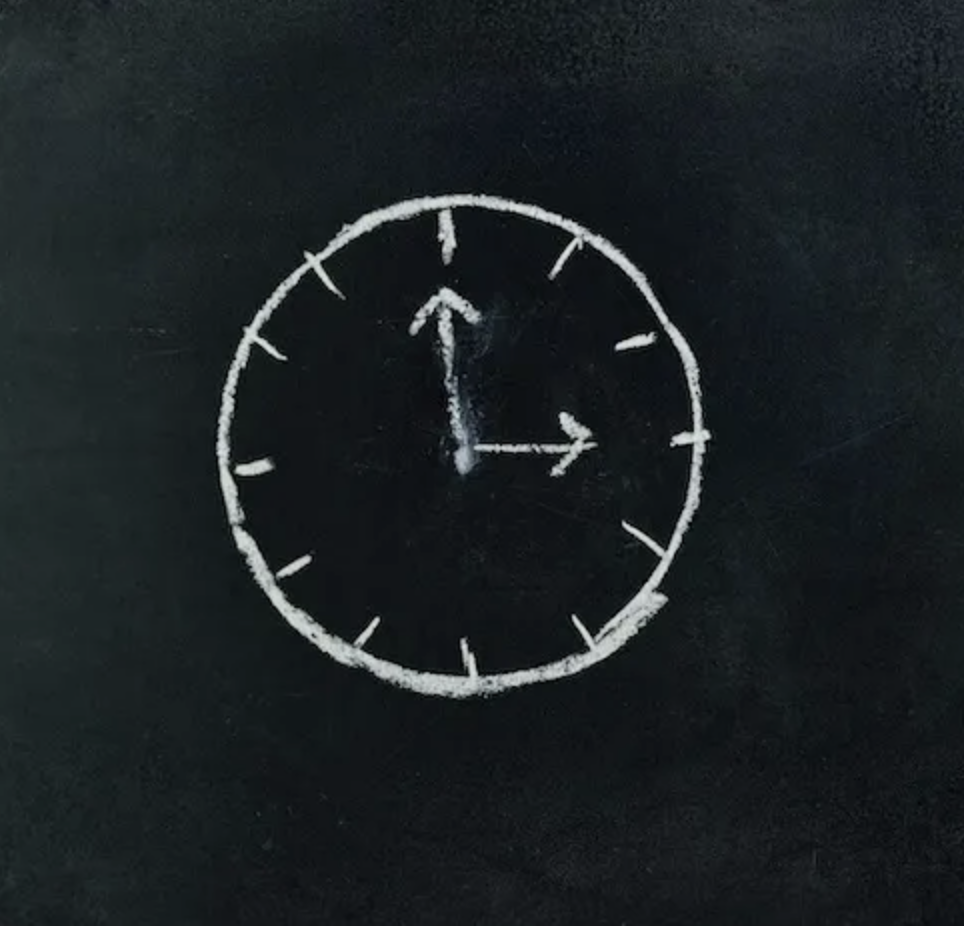Appropriately, it happened during one of those rare moments that were truly outside of time.
The messages arrived when my phone was not just on “Do Not Disturb,” or even in airplane mode, but actually turned off.
I didn’t want to risk any interruptions, since I was sitting in the second row with my mother at a stunning all-Bach concert led and performed by Simone Dinnerstein.
Only afterward did I receive an urgent text about a wedding happening less than forty-eight hours later:
Instead of just attending,
could I officiate instead?
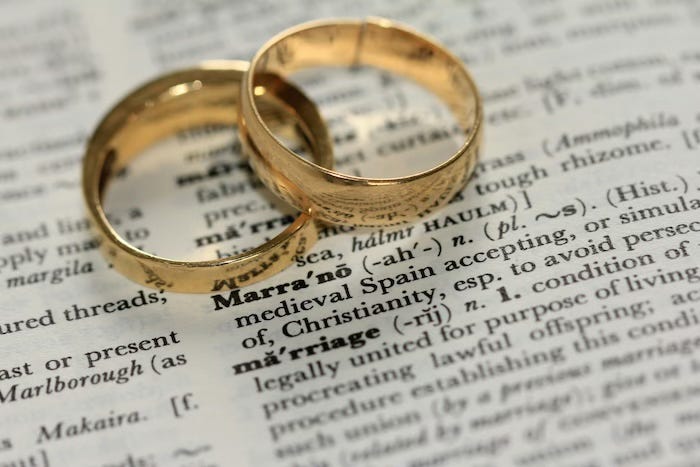
Given that I’m launching (and soft-launching) so many things before the end of the year — the SGR Journal and the wellness app — choosing a November meditation theme HERE was relatively easy: It’s All in the Timing.
I’m exploring this on both macro and micro levels, in the most practical ways and the most mystical.
The ancient Greeks actually had two words for time — Kairos and Chronos — which describe utterly different experiences of it.
Chronos is clock time — the linear sequence of moments my Apple Watch is happy to measure for me.
Kairos, however, is sacred time — the charged instant when everything aligns.
Chronos is purely mechanical, whereas Kairos is undefinable — ruled by intuition, grace, and readiness.
It’s when something larger than you seems to open a door, inviting you to enter.
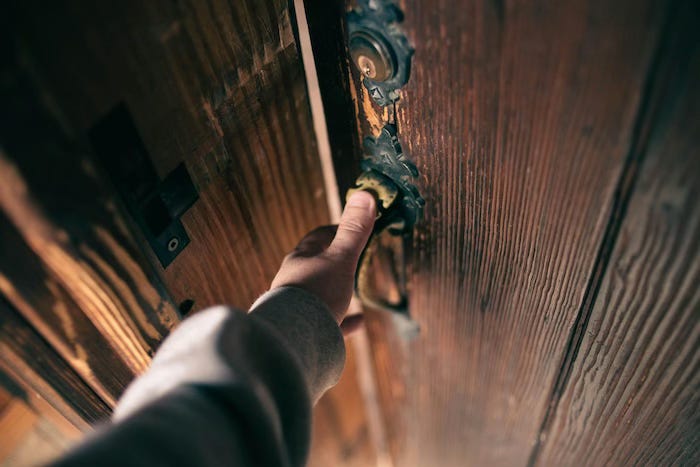
Years before he met his fiancée, my buddy had told me that if and when he got married, he wanted me to perform the ceremony.
Flash-forward to the actual engagement: since the bride had a prior family obligation, the path of least resistance was simply to honor that and attend as a happy guest.
Sidebar: I was, however, quite moved and amused at the bachelor party when the groom’s younger brother (24) took me aside to say:
“Listen, I’m definitely gonna get married three or four times,
and I want you to do the services for all of them.”
Somehow, however, something had happened behind the scenes, and two days before the wedding, they were now without the promised officiant.
It was, of course, a singularly easy “Yes.”
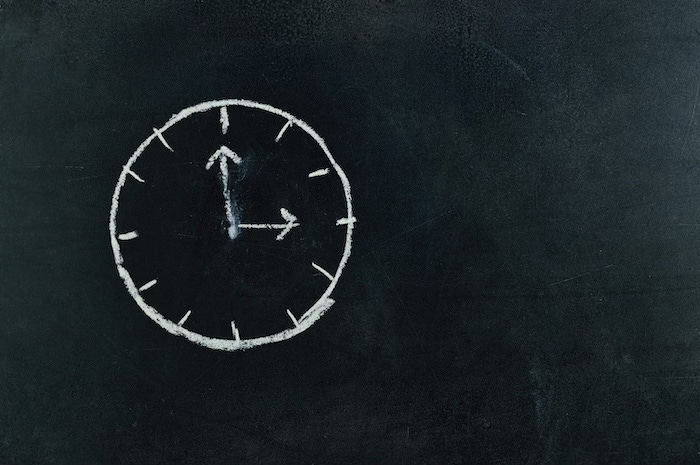
Since I was planning on attending the wedding anyway, the only shift — after confirming that my registration as a minister in NYC was indeed lifelong — was arriving at the venue a little earlier.
Alas, my generous budgeting of Chronos time for the two-hour drive upstate was thwarted.
As I slipped into my tuxedo, ready to depart, quite literally, the moment I turned the ignition key, the trip was suddenly forty-five minutes longer on the GPS.
At best, that would get me there a few minutes before the service was slated to start.
Realizing I could not engage in a battle with Chronos, I decided to relax into the moment.
After all, they really couldn’t start without me.
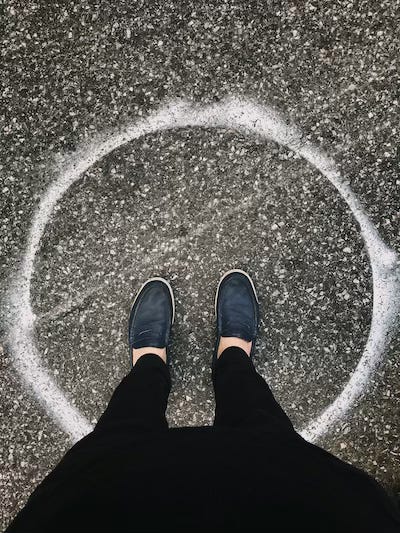
While my partners and I are picking launch dates for various projects, there’s a similar combination of strategy and a nod to randomness.
I’ve been in so many workshops that debate the optimal time to post something for maximum engagement, as though there’s a holy grail of opportunity at Thursday morning versus Tuesday mid-afternoon.
At the other end of the timing spectrum, there’s also great wisdom in the famous quote:
“The best time to plant a tree was twenty years ago.
The second-best time is now.”
Interestingly, while that’s often billed as an ancient Chinese proverb, its earliest verifiable appearance is in a 1967 Journal of Forestry and Conservation.
There’s something amusing about that meta-layering.
Ironically, the best time to coin a proverb was thousands of years ago; the second best time apparently was in the 1960s.
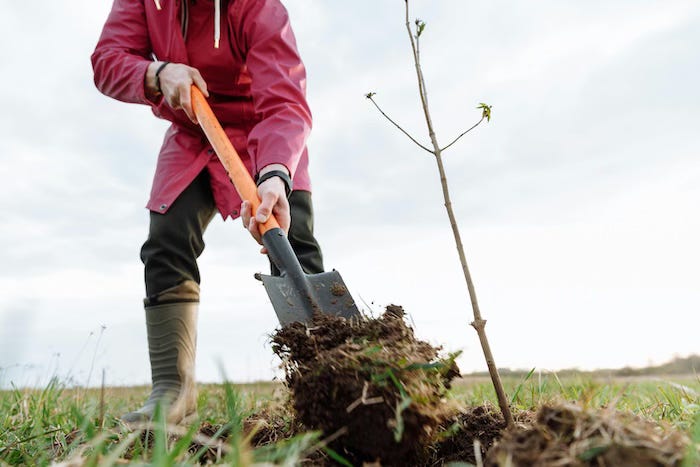
The drive upstate began with superhighways and ended with winding country roads.
Close to the destination, a gorgeous fawn strolled across the expressway, safely exiting it a few seconds ahead of me.
On the way back, another deer — this one fully grown — did the same, each narrowly missing a collision with my vehicle.
Twenty seconds earlier, either of these could have been disasters.
It is indeed, All in the Timing (again, new meditation HERE.)
In fact, I was reminded of another instance of split-second timing, one that worked completely in my favor: the moment Vlad came into my life.

There’s my guy and his siblings; Vlad’s obviously bottom row center.
It had been several melancholy months since my chocolate lab Belle went to her heavenly reward.
One morning, rather than taking the elevator, I was absent-mindedly shuffling down the stairwell for my jump rope workout in the courtyard pictured below.
That’s when I ran into Charlie and his six-month-old puppy, Dua — both of whom I’d only encountered a handful of times in the building — walking in the opposite direction.
Charlie and his wife were about to cancel their animal shelter appointment for the next day to adopt Dua’s littermate Vlad, who’d been returned to the center a day before by a family with a toddler who was overwhelmed by him.
Reconsidering having two dogs in a studio apartment, Charlie asked if I wanted the appointment to adopt Vlad, even offering to drive me.
I readily agreed.
We exchanged phone numbers and made a plan.
Mind you, Charlie and Dua lived on the second floor, so if I’d walked down even thirty seconds later I would have missed them entirely.
The timing was perfect, perhaps miraculously so.
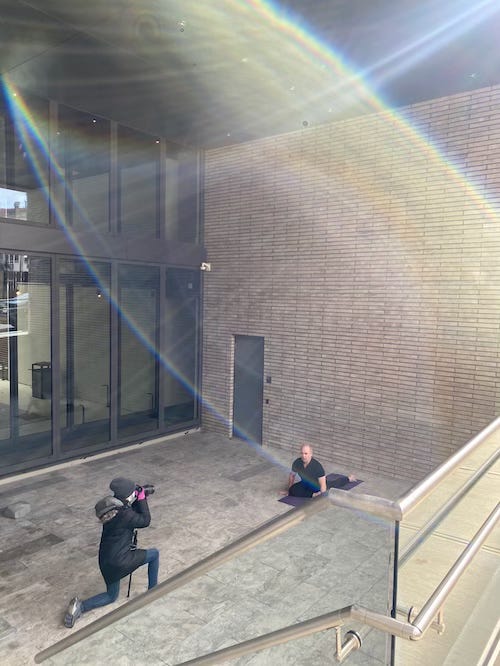
The setting described above — six months before — and for a yoga shoot, not jumping rope.
In The Handmaid’s Tale, time exists at its most dystopian, Chronos-level tyranny.
Women’s cycles are tracked, fertility is ritualized, and life itself is ruled by clocks and surveillance.
Every moment is measured and meaning is all but stripped away.
At the opposite end of the spectrum, The Handmaid’s Tale’s author, Margaret Atwood, also wrote a particularly beautiful poem where Kairos time is captured, not tracked so much as lived.
The Moment
The moment when, after many years
of hard work and a long voyage
you stand in the centre of your room,
house, half-acre, square mile, island, country,
knowing at last how you got there,
and say, I own this,is the same moment when the trees unloose
their soft arms from around you,
the birds take back their language,
the cliffs fissure and collapse,
the air moves back from you like a wave
and you can’t breathe.No, they whisper. You own nothing.
You were a visitor, time after time
climbing the hill, planting the flag, proclaiming.
We never belonged to you.
You never found us.
It was always the other way round.

I began this by sharing that my mother and I were in the second row of that gorgeous Bach concert.
Although she took me to piano lessons beginning in second or third grade, it was actually my mother’s first classical concert.
Interestingly, directly in front of us was the cowboy-hat-wearing seven-year-old above, whose parents informed us that it was also his first concert.
To paraphrase that “ancient Chinese” proverb from the 1960s:
“The best time to expose someone to classical music is when they’re seven;
the second best is when they’re ninety-two.”
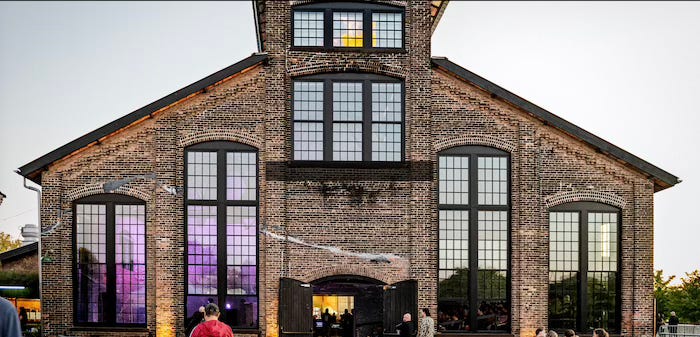
Somehow — with a vaguely illegal U-turn on the highway early on to avoid the source of the unexpected delay — my GPS kept shifting the arrival time in my favor.
I drove up to the wedding venue (above) in plenty of time.
Truthfully, my ministerial role was minimal, mostly holding space for the couple to share the moving vows they’d written.
The service itself was lovely but actually quite brief.
Even so, the intensity of emotion gave it a quality of suspended time.
Parallel to Margaret Atwood’s poem, those kinds of perfect moments are never owned, or even discovered, but find us instead — something that’s only possible when we surrender to the truth that indeed, it’s all in the timing.
Tell A New Story | Transform Your Life

